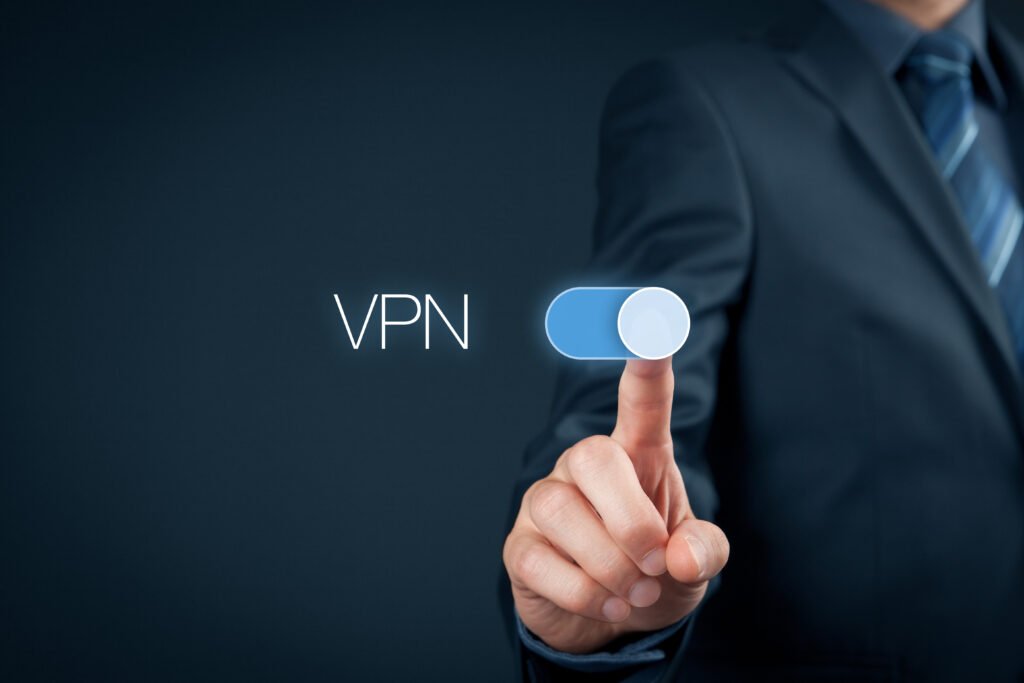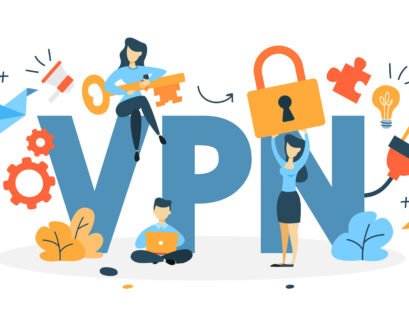
In an era where online privacy and security are increasingly at risk, VPNs (Virtual Private Networks) have become essential tools for internet users. This guide explains what a VPN is, how it works, and why you might need one.
What is a VPN?
A VPN, or Virtual Private Network, is a service that creates a secure, encrypted connection between your device and the internet. It provides privacy and anonymity by masking your IP address and routing your internet traffic through a remote server. This makes it difficult for third parties, such as hackers, ISPs (Internet Service Providers), and government agencies, to track your online activities or intercept your data.
How Does a VPN Work?
A VPN operates through a series of steps that enhance your online privacy and security:
VPN Client Installation:
- You start by installing a VPN client (software application) on your device. This client is provided by the VPN service provider.
Connection to a VPN Server:
- When you activate the VPN, the client connects to a VPN server located in a region of your choice. The connection between your device and the VPN server is encrypted.
IP Address Masking:
- Your real IP address is replaced with the IP address of the VPN server. This makes it appear as though your internet traffic is coming from the VPN server’s location rather than your actual location.
Encryption of Data:
- The VPN encrypts all data transmitted between your device and the VPN server using encryption protocols such as OpenVPN, L2TP/IPsec, or IKEv2. This ensures that even if your data is intercepted, it remains unreadable.
Secure Data Transmission:
- Encrypted data is transmitted to the VPN server. The server then forwards your traffic to its intended destination (e.g., websites, online services), and receives responses, which it encrypts and sends back to your device.
Decryption of Data:
- The VPN client on your device decrypts the data received from the VPN server, allowing you to access the internet securely and privately.
Key Features of VPNs
Encryption:
- VPNs use strong encryption methods to protect your data from being accessed by unauthorized parties.
Anonymity:
- By masking your IP address, a VPN helps maintain your anonymity online.
Bypassing Geo-Restrictions:
- VPNs can help you access content that is restricted or censored in your region by routing your traffic through servers located in different countries.
Secure Public Wi-Fi Usage:
- VPNs provide an additional layer of security when using public Wi-Fi networks, protecting your data from potential eavesdroppers.
No-Log Policies:
- Many VPN providers implement no-log policies, meaning they do not keep records of your online activities, further enhancing your privacy.
Why Use a VPN?
Protect Your Privacy:
- Prevent ISPs and other third parties from tracking your browsing habits and personal data.
Enhance Security:
- Safeguard your data, especially when using unsecured networks like public Wi-Fi.
Access Restricted Content:
- Bypass geo-restrictions to access streaming services, websites, and social media platforms that may be blocked in your region.
Avoid Censorship:
- In countries with strict internet censorship, VPNs can help you access the open internet without restrictions.
Prevent Bandwidth Throttling:
- Some ISPs throttle (slow down) your internet connection based on your activities. A VPN can hide your activities, preventing throttling.
Types of VPNs
Remote Access VPN:
- This type of VPN allows users to connect to a private network remotely. It is commonly used by businesses to enable employees to securely access company resources from outside the office.
Site-to-Site VPN:
- Also known as Router-to-Router VPN, it is used to connect entire networks to each other. It is often used by companies with multiple locations to connect their office networks.
Personal VPN:
- This type of VPN is used by individuals to protect their personal internet connections and ensure privacy and security.
Conclusion
A VPN is a powerful tool that enhances your online privacy and security by encrypting your internet traffic and masking your IP address. Whether you’re looking to protect sensitive data, bypass geo-restrictions, or simply maintain your privacy online, a VPN can provide the protection and anonymity you need. By understanding how a VPN works and its benefits, you can make informed decisions about your online security practices.



